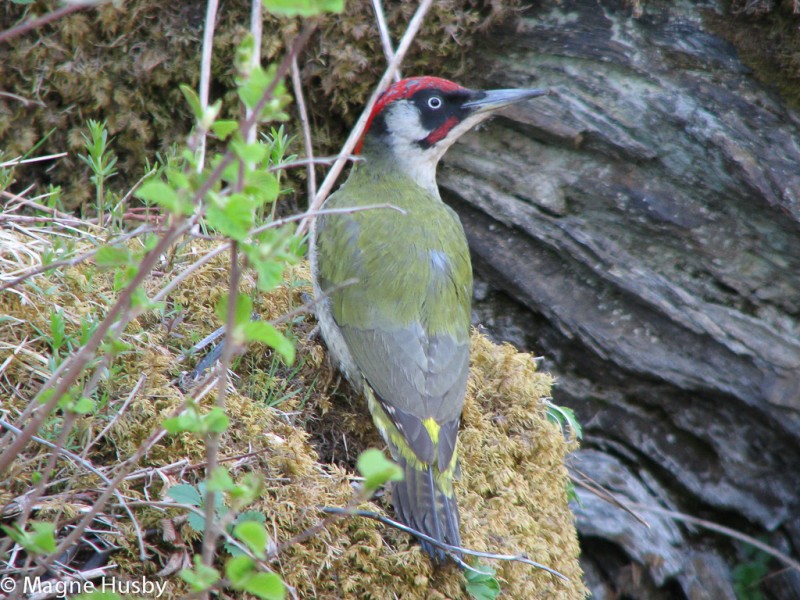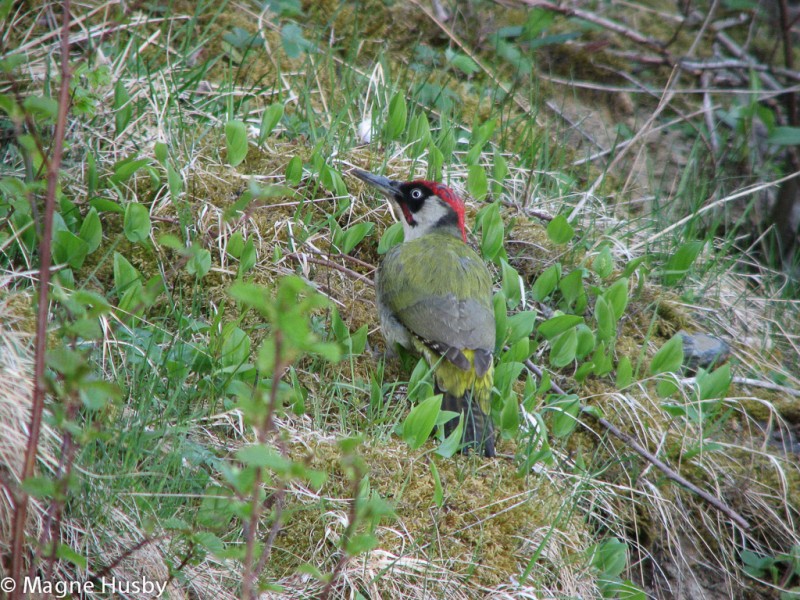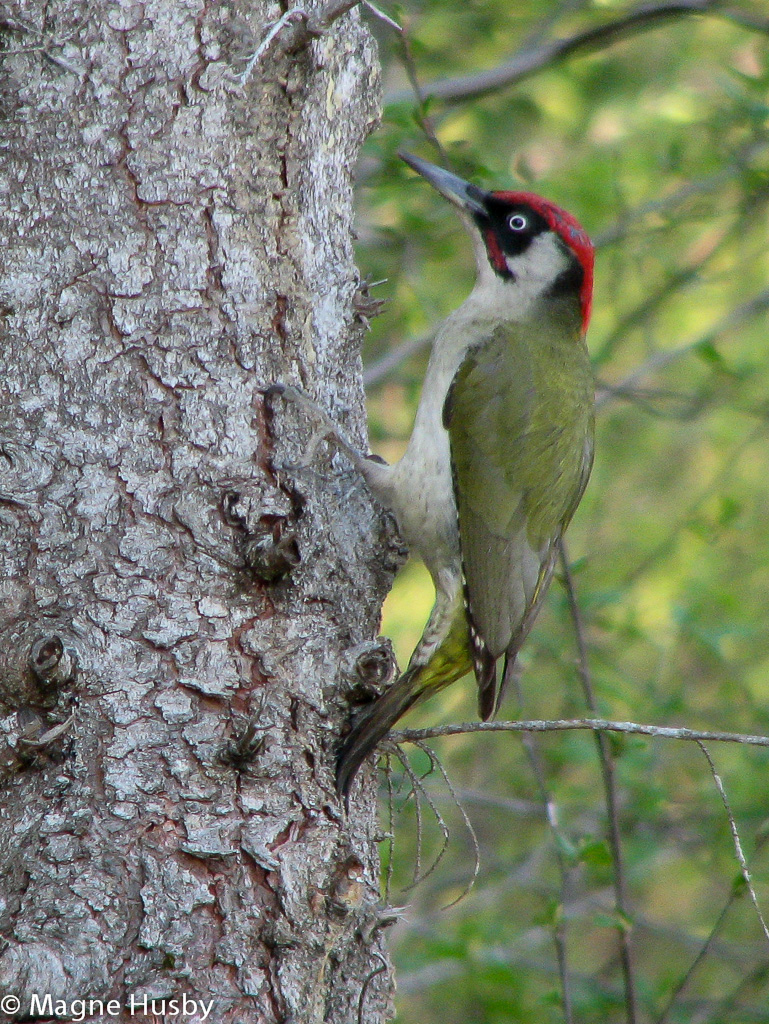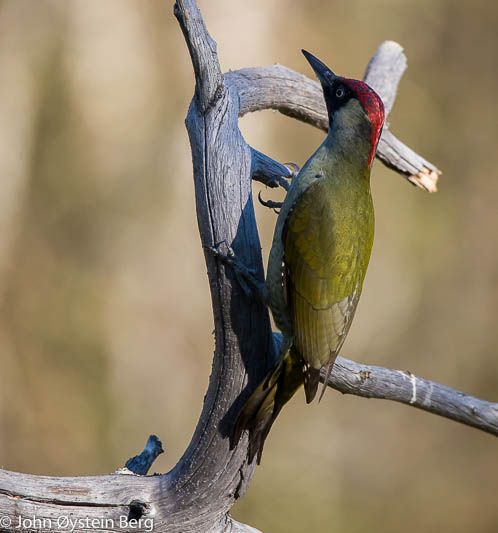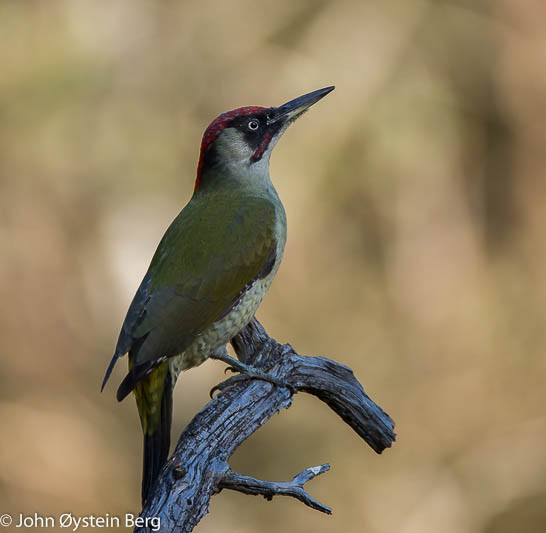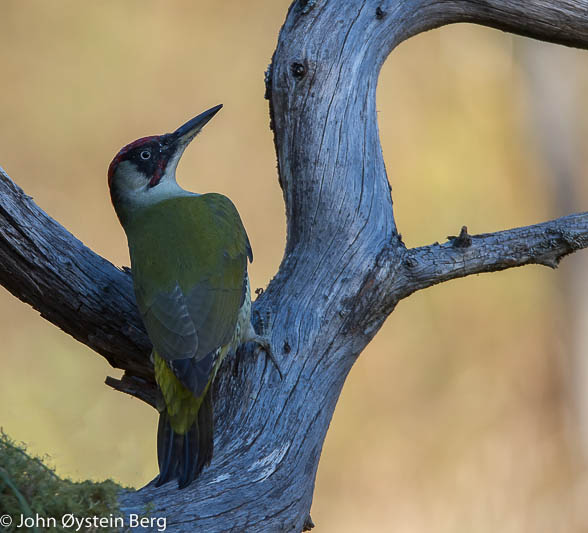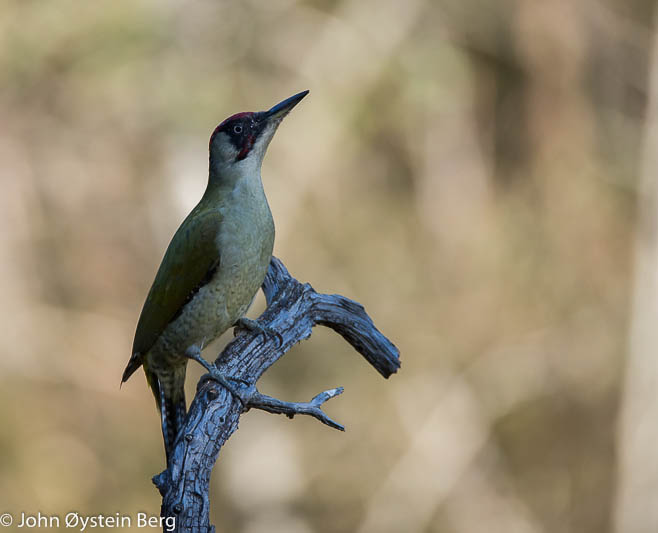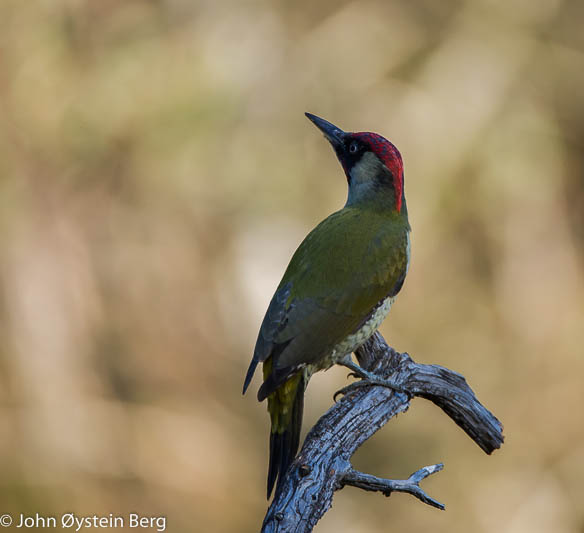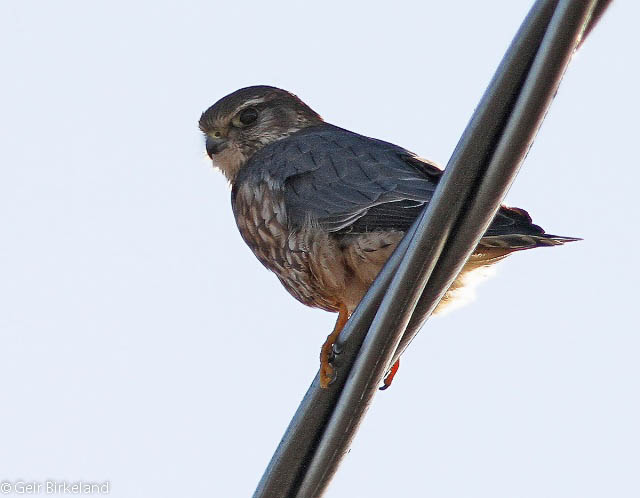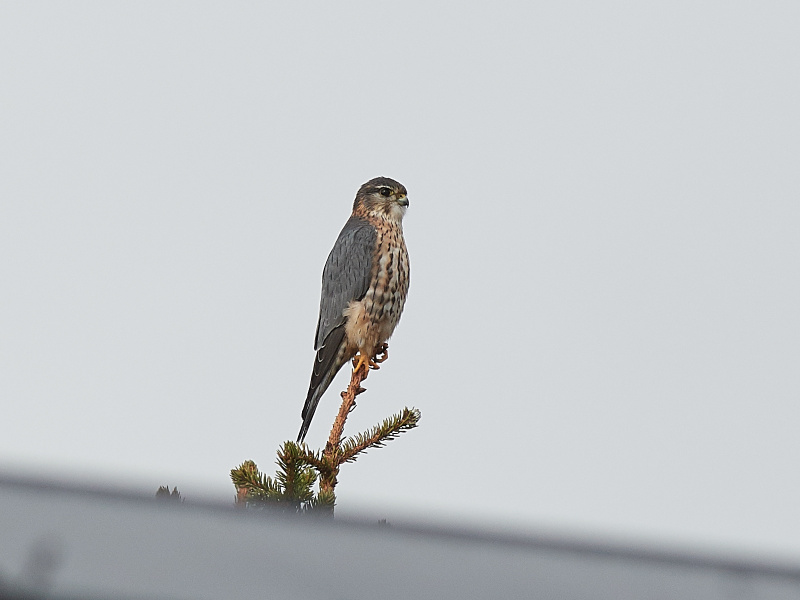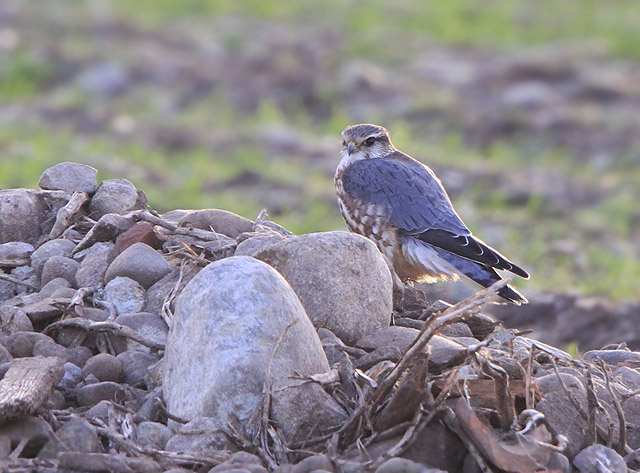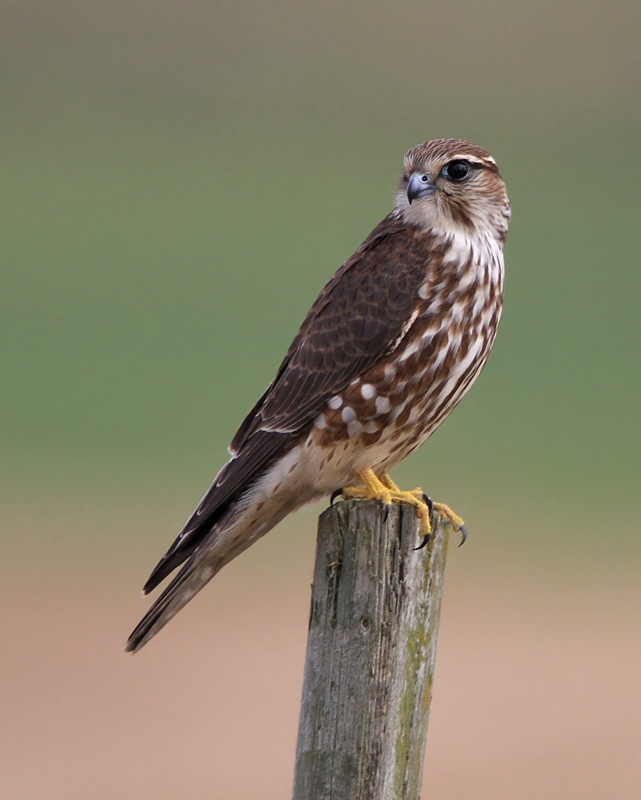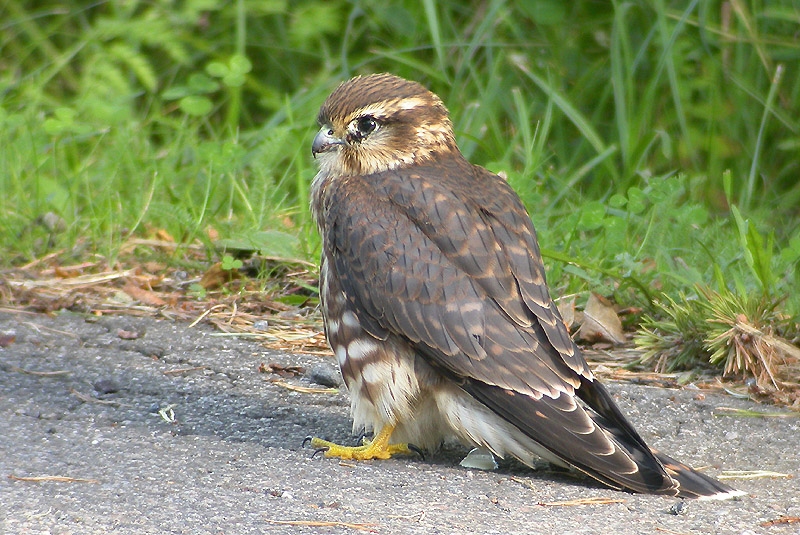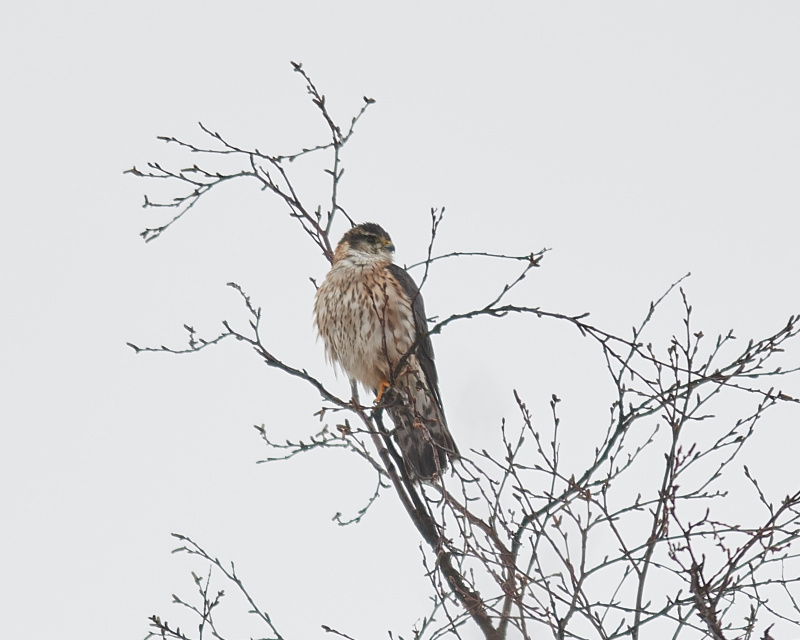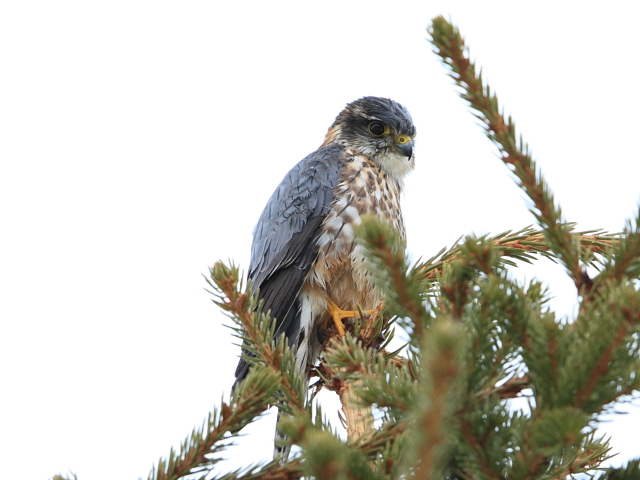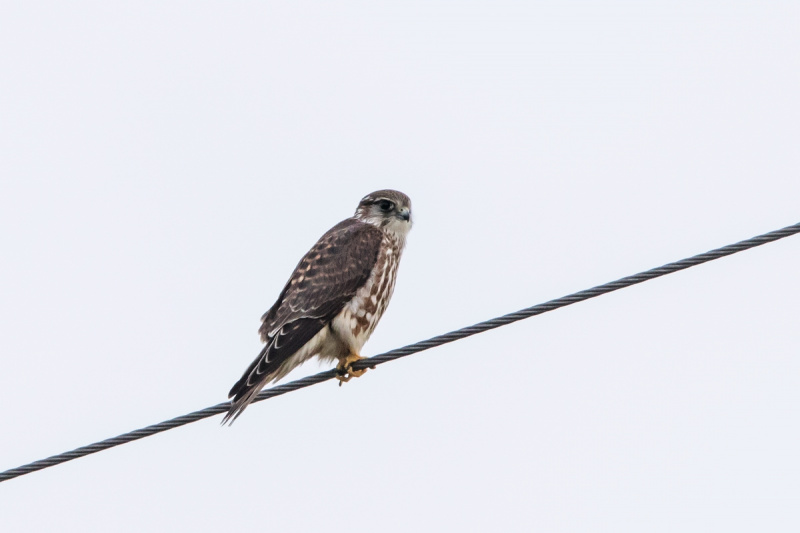Green Woodpecker (Picus viridis)
Merlin (Falco columbarius)
Medium sized, green woodpecker with black mask. Crown red in all plumages. Females with black moustache stripe, males with red framed in black. Juveniles heavily marked with small black and white spots all over, and less prominent black mask. Bigger and more heavily built than Grey-headed Woodpecker, with longer and stouter bill. Often foraging on the ground. Flight undulated.
Sound:Song similar to Grey-headed Woodpecker, but not as soft and fluty. Each phrase consist of a series of short "klee", with a laughing quality. Pitch drops slightly throughout the phrase, but not as markedly as in Grey-headed, and tempo is fairly constant (no ritardando). Short "kek" calls when excited and in flight. Drumming of 1.5 seconds duration with decelerating tempo, but not often heard. Another call is similar to Black Woodpecker; a series of resonant "klit-klit-klit-klit-klit-klit", but is less clear, has a more determined start and has less obvious rising pitch at the end of each syllable.
Song:
Distribution:
Wikipedia: map (se also Xeno-canto below)
Ecology:Birdlife ecology
Links:
Observation.org Latest observations
Image search Flickr NB! May give other species
CCSmallest falcon. Male with slate grey upperparts, and pinkish buff, speckled underparts . Female dark brown above and heavily speckled below. Due to the extensive markings, the underparts give a darker impression than in Kestrel. Tail of female with dark broad bands, tail of male with broad black terminal band. Diffuse facial markings. Short wings. Silhouette similar to Peregrine, but the much faster wing beats are diagnostic. Acrobatic flight with sharp twist and turns when chasing prey. Alternating glides and bursts of wing-beats gives undulating flight.
Sound:Series of harsh "kwik-wik wik". Coarseness similar to Peregrine, but pace much quicker. Female call harsher than male. Lacking the clearer tones and attack of Kestrel.
Alarm call:
Distribution:
Wikipedia: map (se also Xeno-canto below)
Ecology:Birdlife ecology
Links:
Observation.org Latest observations
Image search Flickr NB! May give other species
CC
 English
English Albanian
Albanian
 Armenian
Armenian
 Bulgarian
Bulgarian
 Catalan
Catalan
 Croatian
Croatian
 Czech
Czech
 Danish
Danish
 Dutch
Dutch
 Finnish
Finnish
 French
French
 Georgian
Georgian
 German
German
 Greek
Greek
 Hungarian
Hungarian
 Italian
Italian
 Latvian
Latvian
 Lithuanian
Lithuanian
 Macedonian
Macedonian
 Norwegian
Norwegian
 Polish
Polish
 Portuguese
Portuguese
 Romanian
Romanian
 Russian
Russian
 Sami : Lule sami
Sami : Lule sami
 Sami : North sami
Sami : North sami
 Sami : South sami
Sami : South sami
 Scientific names
Scientific names
 Serbian
Serbian
 Spanish
Spanish
 Swedish
Swedish
 Ukrainian
Ukrainian


